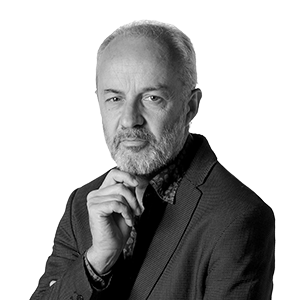Post-Francoism: how we rethink ourselves
The Royal Academy of Fine Arts invites historians, philosophers, and philologists to review the evolution of the last 50 years


BarcelonaWith the death of dictator Francisco Franco on November 20, 1975, Catalan society awoke from a nightmare. It had long been brimming with expectations and dynamism. But until the death of leader The latent energies did not fully erupt. This was also true in the cultural world.
To analyze what has happened since that explosion to date, the Royal Academy of Belles Lettres of Barcelona has organized the conference 1975-2025: Half a century of post-Francoism, a cultural assessment. Josep Ramoneda is coordinating the philosophical thought section; Borja de Riquer, president of the Academy, is in charge of the historical section; Lola Badia has conceived the debates on the evolution of the Catalan language; and Sergio Vila-Sanjuán has coordinated the epilogue on literary and artistic creation.
The first meeting is this Monday, November 17. Admission is free and no pre-registration is required. The initial topic: Catalan philosophy. Ramoneda explains that the end of the dictatorship brought about a clear opening after years of the burden of conservative ecclesiastical thought and fascist-like references: "Transitional figures like Pep Calsamiglia, from progressive Christianity, or Manuel Sacristán, from Marxism, set the course for renewal." The Philosophy of Barcelona Academy was founded by Antoni Vicens, Xavier Rubert de Ventós, Eugenio Trías, and Jordi Llovet. Also dating from those years is the collection of classics of thought translated into Catalan, promoted by Calsamiglia, Pere Lluís Font, and Ramoneda. Victoria Camps, Jaume Casals, and Ramoneda will discuss its resumption. The second panel, along with Begoña Román and Daniel Gamper, will address its continuity to the present day.
On November 26 and December 3, with six sessions (morning and afternoon), it will be the turn of history. "In the field of historiography, a radical change has occurred in this half-century," says Riquer, who recalls that it came from the "isolation and regression" of the dictatorship, a setback that was both interpretive and methodological. It was with Vicens Vives' disciples—Jordi Nadal, Josep Fontana, Emili Giralt, Josep Termes—and with the growth of universities and the influx of young professors, that the great leap forward occurred, initially marked by Marxism, and soon with international connections and new thematic focuses. The debates, organized in this section in collaboration with the journal SearchesSpecialists from different eras and generations will gather.
The Catalan language will take center stage on December 10th in debates supported by the Department of Language Policy. These discussions will range "from the euphoria of the early days to the disillusionment of the last seven years," according to Lola Badia, who, however, clarifies: "Without getting carried away." The historical journey will be explored through the lens of Catalan's status in universities, particularly in linguistic and literary studies; from a sociolinguistic perspective, where not everything is bad news; and from the standpoint of literary creation, both from the perspective of writers and the publishing world.
The conference will conclude on December 11th with a single session featuring Jordi Nopca (Catalan narrative), Domingo Ródenas (Spanish narrative), and Victoria Combalia (visual arts).
